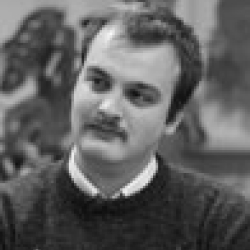Sergey Kondratiev, Deputy Head of the Economic Department of the Institute for Energy and Finance Foundation, commented to the Internet portal VZGLYAD.RU on the likelihood of including nuclear energy in the list of industries developed by the European Commission that contribute to reducing environmental harm.
Representatives from ten EU member states supported the inclusion of nuclear energy in the list of industries developed by the European Commission that contribute to the environmental harm reduction. This is stated in the joint article politicians, published on the website of the newspaper Le Figaro. Thus, the publication was signed by the prime ministers, ministers of economy and energy of France, Romania, Czech Republic, Finland, Slovakia, Croatia, Slovenia, Bulgaria, Poland and Hungary. According to them, nuclear energy is safe, does not contribute to global warming more than other green forms of energy - and, unlike gas, will protect Europe from price surges.
However, the likelihood that Brussels will recognize nuclear energy as "green" is small, because the public opinion opposing the NPP is still strong, the FIFE expert believes.“There are no signatures from Spain, Belgium, Germany, Greece, which have great traditions in the use of atomic energy and which have a real impact on decisions making at the European level. France alone is not enough. Therefore, it is too early to call it an atomic turn. Rather, it is the first swallow," Sergey Kondratiev says.
In his opinion, even if rolling blackouts of electricity occur in Western Europe in winter, and such risks are no longer excluded, Brussels will not change its position. On the contrary, the EC will now be even more furious in advocating a faster energy transition, assuring that this is precisely where the European energy sector will find salvation.“Even in Germany or Spain, where there have been no serious incidents at nuclear facilities, public opinion is strongly opposed. To create a positive attitude towards nuclear energy it’s necessary a serious work, which is being carried out in Russia, in China and even in Japan, where they are not ready to give up nuclear energy. But such work is not carried out in Western Europe,” the expert notes.
“This is an ideological consensus of the political elite of Western Europe that it is necessary to switch to exclusively green energy in its narrow sense. In my opinion, this consensus is irrational. But we saw the same thing when the European Commission reformed the gas market and created the norms for the Third Energy Package. It is irrational to allow pumping gas through the pipe only by half, even in the absence of a second supplier, but this is the ideology of the European Commission,” Kondratiev points out.
However, even if Brussels unexpectedly wakes up and gives nuclear power a chance for a rebirth in the EU, it will not become a momentary panacea for the crisis.
“It is necessary to invest in nuclear energy in advance. If now the Europeans begin to build new nuclear power units, then the first energy will appear not earlier than in 10 years. The problem is that Europe has lost the technology for the rapid construction of nuclear power plants. Now only Rosatom is able to quickly build a nuclear power plant - in six to seven years. In Europe, the construction takes even 15 years,” Kondratyev emphasizes.

Subscribe for updates
and be the first to know about new publications